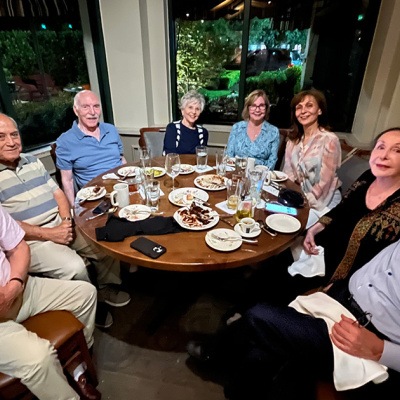Why Seven Beloved Games Have Stood the Test of Time, According to This Journalist
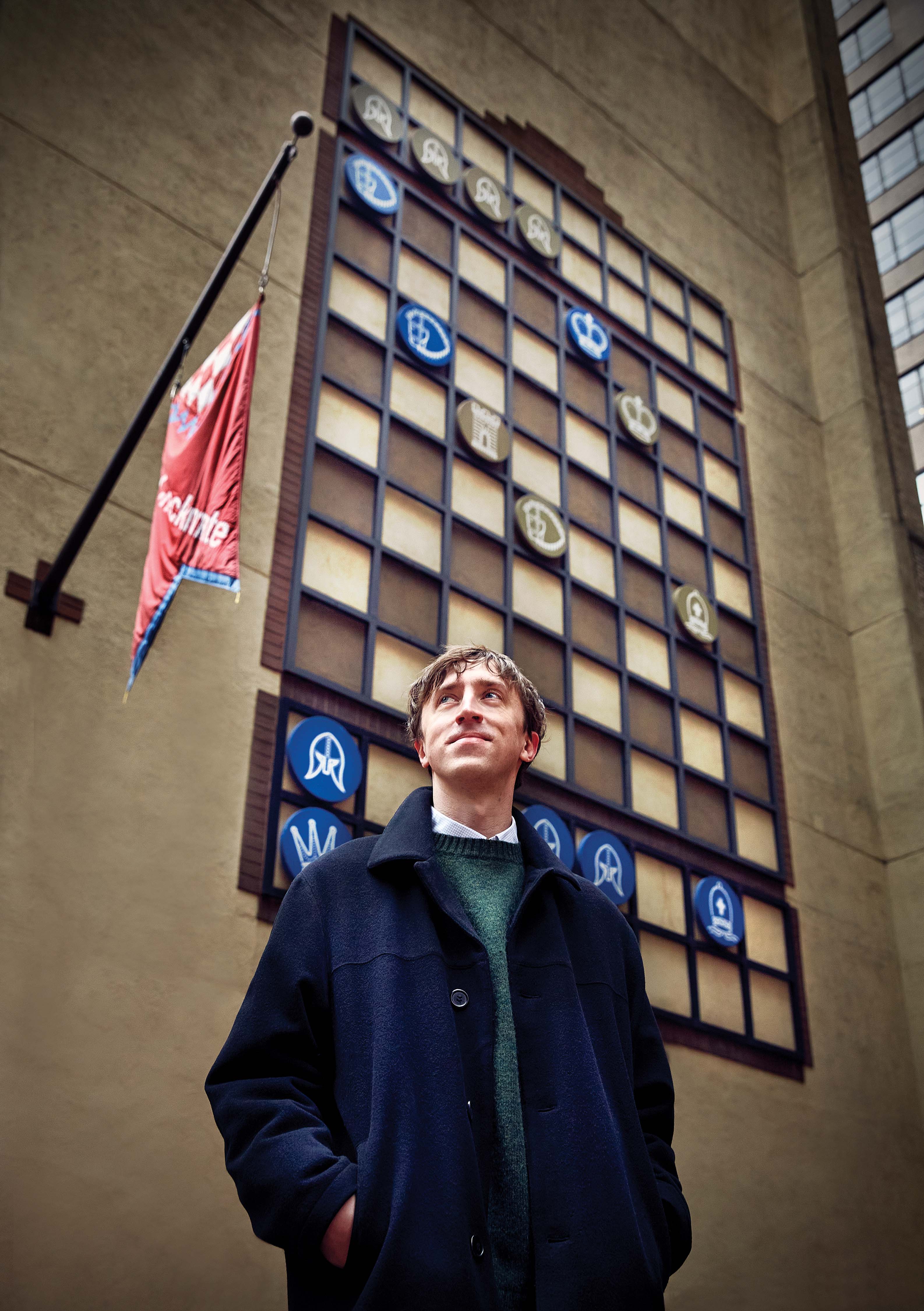
Between March and August 2020, people around the world watched 41.2 million hours of the latest game craze on Twitch, the online streaming service where gamers can go to watch others or stream themselves playing video games. Viewers weren’t there to watch players complete a flashy fantasy quest or cut virtual fruit like a ninja. No, it was for the online version of a centuries-old game that had become one of the pandemic’s most surprising entertainment booms, even with notoriously slow, quiet, contemplative play and rudimentary graphics: chess.
Oliver Roeder, a journalist, former writer and puzzle editor at FiveThirtyEight, and a 2020 Harvard Nieman Fellow, has seen different games experience similar “booms” and “busts” over the years—from a rise in poker’s popularity when Chris Moneymaker won the 2003 World Series of Poker after qualifying on an online poker site, to the fervor inspired by the board game Catan in the 2000s.
In his new book, Seven Games: A Human History, which was released in January, Roeder, MS ’09, PhD ’13, breaks down the history of seven classic games that we’re all likely familiar with: checkers, backgammon, chess, poker, Scrabble, Go, and bridge. The book isn’t a manual of these games that many know by heart, but the stories of those who made, played, and mastered them.
While some of Roeder’s fondest childhood memories include playing poker with his family and finally beating his grandfather at chess, he’s more than just a lifelong games lover. He’s actually played among some of the expert players he covers in his book. While researching Seven Games, Roeder played in the World Series of Poker and the North American Scrabble Championship. He was beaten countless times by artificial intelligence programs. And he became utterly obsessed with backgammon.
The Alcalde chatted with Roeder about the ways these games have inspired such deep obsessions, how computers have changed games playing, and whether we really are in the “Golden Age of Games.”
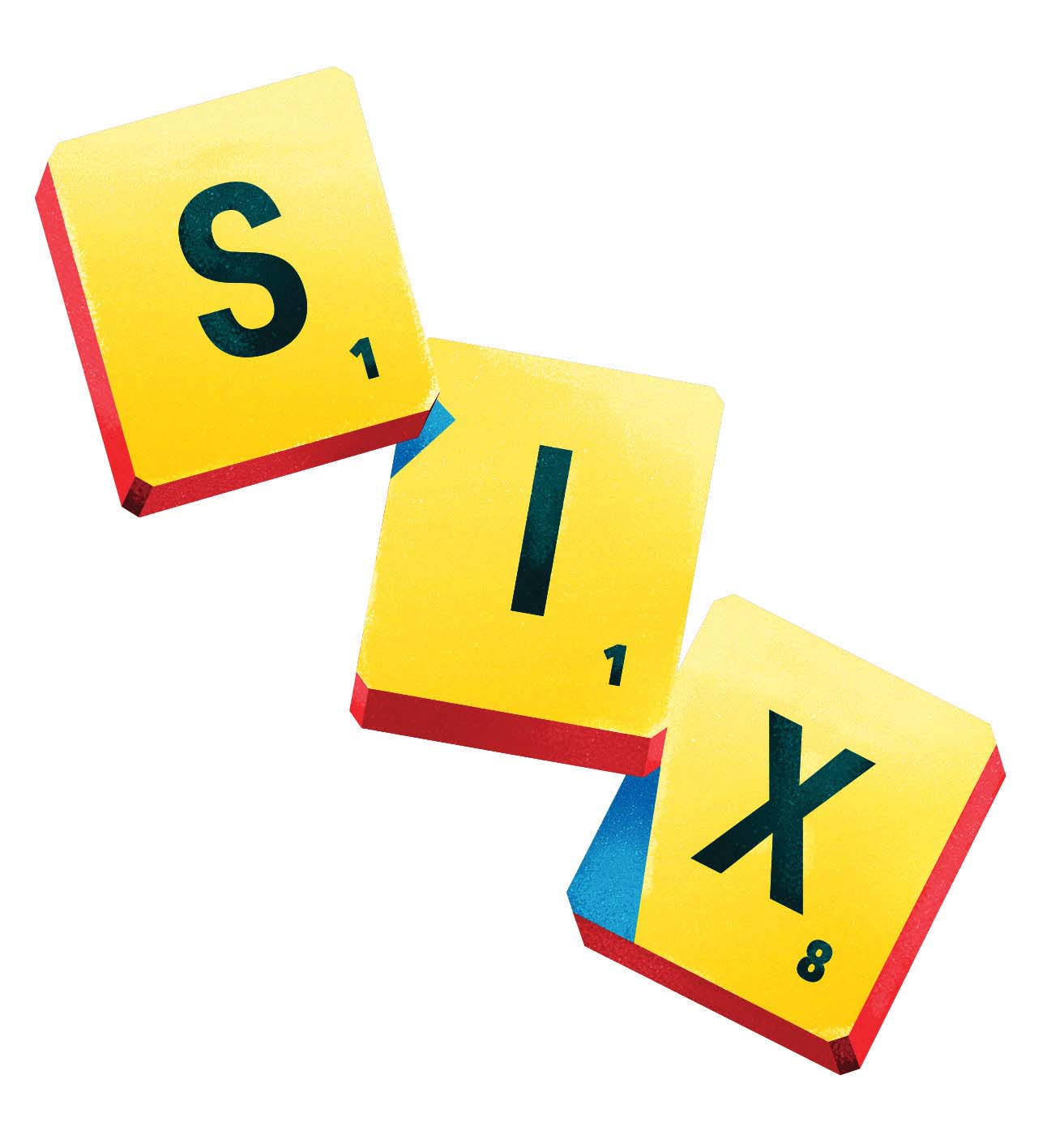
Growing up, some kids are readers, some are artists, some play sports. Were you always a games player?
Exactly right. Games were my family’s love language; we couldn’t escape. Anytime there was free time, we would play games. Some of the most formative games-playing experiences of my childhood were with my family in my grandparents’ farmhouse in Eastern Iowa. There was a jar of change that always sat high above, out of the reach of the children. But when it was time to play poker, the jar of change came down, the pennies and nickels were distributed, and we played poker. Whatever we won, we could keep.
It’s how we stayed close and how we showed affection—and occasional hatred—for one another.

So, besides being an avid games player, what started this whole book?
There were two things I noticed most while reporting and writing about games at FiveThirtyEight.
No. 1 was the passion of the subcultures, and how seriously these subcultures take these seemingly frivolous pursuits. As a journalist, I wanted to treat them seriously, right? Not somberly, but try to understand why it is that these people devote so much time, energy, and money to understanding and playing whatever game it is.
No. 2 was this creeping influence of technology, and specifically, artificial intelligence (AI). Every game, AI was playing some role. [For example,] every top chess player uses AI to train.
And because computers had gotten so superhuman at games playing, they had just infected every one of these subcultures. I wanted to write a book that told two stories at the same time: the role that games play in human culture, and the role that games play in the development of technology.
How did you choose the seven games you explore in the book?
They’re popular. A lot of readers have probably played at least one and possibly all of them. They also all have fairly vibrant human subcultures currently, and they’ve all seen very serious AI research done using them as test beds.
For a nice softball question, do you have a favorite of the seven?
That’s not a softball. That’s like asking to choose your favorite child.
These games have had their own sort of booms and busts in my own life. Austin has one of the strongest and most vibrant Scrabble scenes in the country. When I was in grad school at UT, I joined the Austin Scrabble Club, which had some really strong players. And I started out as a really not strong player, but I fell deep down the Scrabble rabbit hole for a few years and started playing in a lot of tournaments and at the club every week. Scrabble was a huge obsession of mine during grad school, probably to the chagrin of my thesis committee.
But before that it was chess. Chess was what I played as a kid against my grandpa, who was a very strong player. As a rule, he would never let kids win. He was just categorically opposed to letting children win. You knew that if you won, you really won. Eventually, I beat him. It took a long, long time. But chess was my game when I was a kid, poker in college ... Like certain songs can bring you back to certain time periods of your life, certain games bring me back to certain time periods.
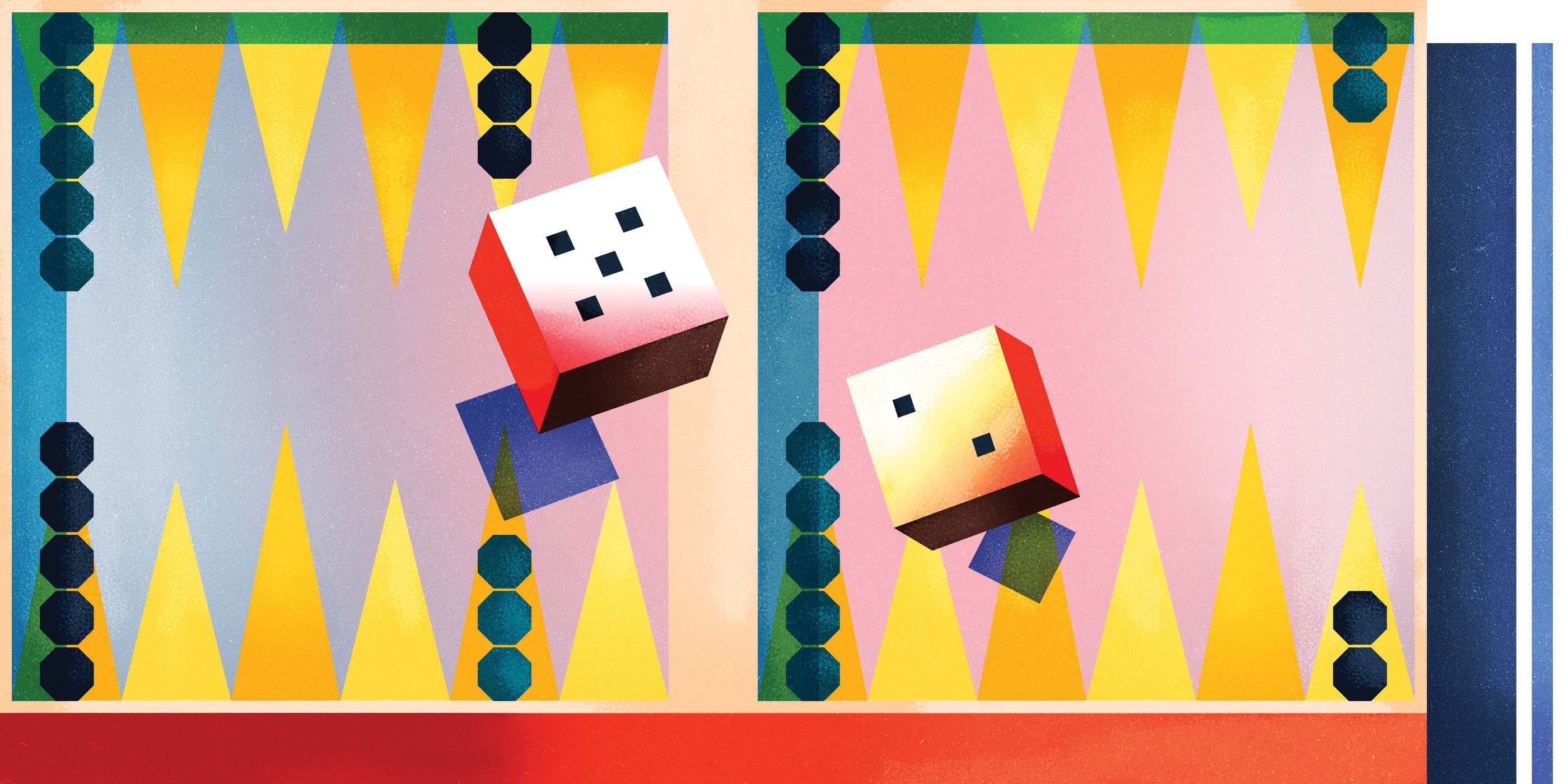
Did you learn anything surprising about chess or any other games while you were doing research for the book?
One of the games that I hadn’t really played that I write about is backgammon. Of course, I had heard about backgammon. I had probably played it once or twice, and I knew it was this very ancient game. As I reported on the history, the top players, and the research that was done into the game, I became completely obsessed to the point where I play backgammon almost every single day now. I found myself utterly sympathizing with all the characters in that chapter, because I was like, Yeah, I totally get why you’re into this.
One of the most surprising stories I reported was this story of solving checkers. There’s this idea in math, computer science, and game theory of solving a game.
And what that means is, with perfect play you know exactly how the game is going to end. A simple example of this would be tic-tac-toe. Tic-tac-toe is a solved game. If you’ve played perfectly, the game is a draw. No one knew the answer to how a perfectly played game of checkers would turn out.
This computer scientist named Jonathan Schaeffer at the University of Alberta decided to solve checkers. And this sounds easy enough, right? Checkers is like a children’s game. It’s simple. But solving checkers took him [nearly] 20 years and occupied his entire professional life at the cost of his marriage, his family, and, at times, his mental health.
While he was solving checkers with his computer program, he found out about the best human checkers player in the world, Marion Tinsley, who is possibly better at checkers than any human has ever been at any competitive pursuit in the history of our species. Tinsley lost three games in 40 years.
Schaeffer also got it in his head, Yeah, I want to solve the game, but while I’m doing that, I want to beat this guy, Marion Tinsley. A lot of people would call it man versus machine, but in fact, it was a battle between two humans: human as the computer programmer and human as the checkers player. It was absolutely fascinating to me, the extent to which humans get obsessed with these pursuits. It signaled to me that there’s something essential and rich in games that I wanted to explore.
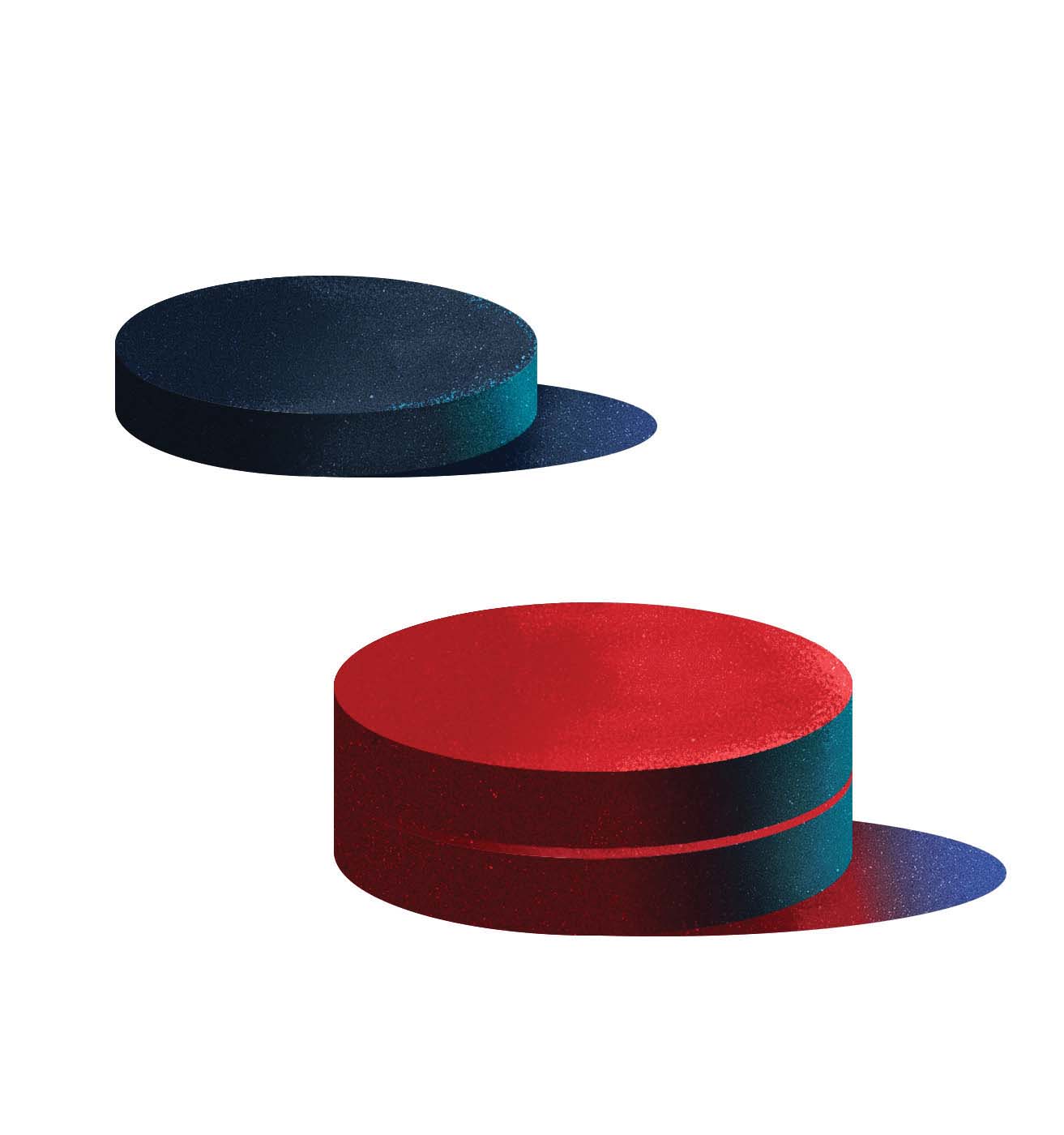
What is it about these games that have inspired such obsession … from people who are professionals to even someone like yourself, who now plays backgammon every day?
To take out a small slice of that question, like why these games in particular—why has backgammon lasted 5,000 years? Why has chess lasted 1,500 years? I think it’s an evolutionary process. In some ways, these games are like art objects. Like, why is this statue in a place of prominence in the Louvre? Well, because it’s the one that survived. These games are the ones that survived for some unknowable reasons, but they’ve also survived because they have good traits. They have a nice mix of skill and luck. They have replayability; you can play them over and over and never have the same game twice.
A lot of these games are very good at giving the player a feeling of control. That’s one of the things that makes games so appealing—they capture human agency.
Games seem to have had a resurgence during the pandemic, when a lot of us were experiencing a lack of control. What do you think that says about us?
Without question, there’s been a games-playing Renaissance happening. I think it started before the pandemic, [and] it was fueled very intensely by the pandemic. I think there are a few reasons. The obvious reason is that a lot of people had a lot of time on their hands, and games-playing is a great way to fill that time. The second reason is that games are a great way to come together with people, and that was something we all really craved during the pandemic. A game is a great excuse to do that. A game augmented with a video chat, at least in my experience, was a very common and enjoyable pastime in 2020.
And three, I think there was something human that we were denied, especially in the early part of 2020, of exercising agency, making decisions, acting, seeing the results of our actions manifest in the world. People were craving that, and I think playing games is a wonderful way to think and decide and act and see the fruits of that manifest in the world. In this case, it’s the world of a game on your table rather than the real world.
But I think playing, broadly speaking, is something that we have to do. You can make the argument that the world is a game, and philosophers have made this argument. There are rules by which we generally abide. There is an outcome we are trying to achieve.

So … Are we really in a “Golden Age of Games”?
I would say there’s a desire to disconnect from pervasive screens and the sort of shallow connectivity provided by social media. A very natural outlet for that desire is traditional board games, where they’re best played in person with snacks and conversation.
There’s sort of this Renaissance in board game design that I think can be roughly traced back to [German board game] Catan, which is very well designed. This exposure to Catan opened this huge portal to this wider world of designer board games to a lot of American players. In turn, I’m sure it spawned a lot of American board game designers, who in turn designed their own board games that then we played, and so forth.
You spent a year researching artificial intelligence as a Nieman Fellow at Harvard. How did that play into writing the book?
I’m very interested in ongoing developments in the world of AI and what we might expect its impact to be on our daily lives. And specifically, I’m interested in understanding that as a journalist. I studied AI because I wanted to come out of that year ready to confront AI as a journalist.
One of the tenants of journalism is we’re meant to hold power to account. AI is becoming extremely powerful and installed in more and more positions of power. I wanted to have a basic technical understanding of what it is and to think about how we might effectively cover AI for readers. Technology ... was made by humans. So, let’s try to talk to those humans.
It’s important to talk to people who made [AI] to understand their motivations and interrogate their incentives.

How many hours of play time did you put into this book across all the games?
I don’t even want to think about it. It’s got to be at least a couple of hours a day playing in addition to reporting. If I was reporting my poker chapter, I would play a lot of poker to get myself in the spirit of things. I made a very concerted effort to play all the games in the book as seriously as I could. I played a lot of chess. I played in the World Series of Poker because all you have to do is give them money and you get a seat. I couldn’t obviously play in, like, the World Chess Championship, I’m not nearly that good. But I played in the North American Scrabble Championship.
I would also try to play against the top machines, too. I knew that I would lose, because the machines are so superhuman these days, but I wanted to know what it felt like, to be outplayed by a machine.
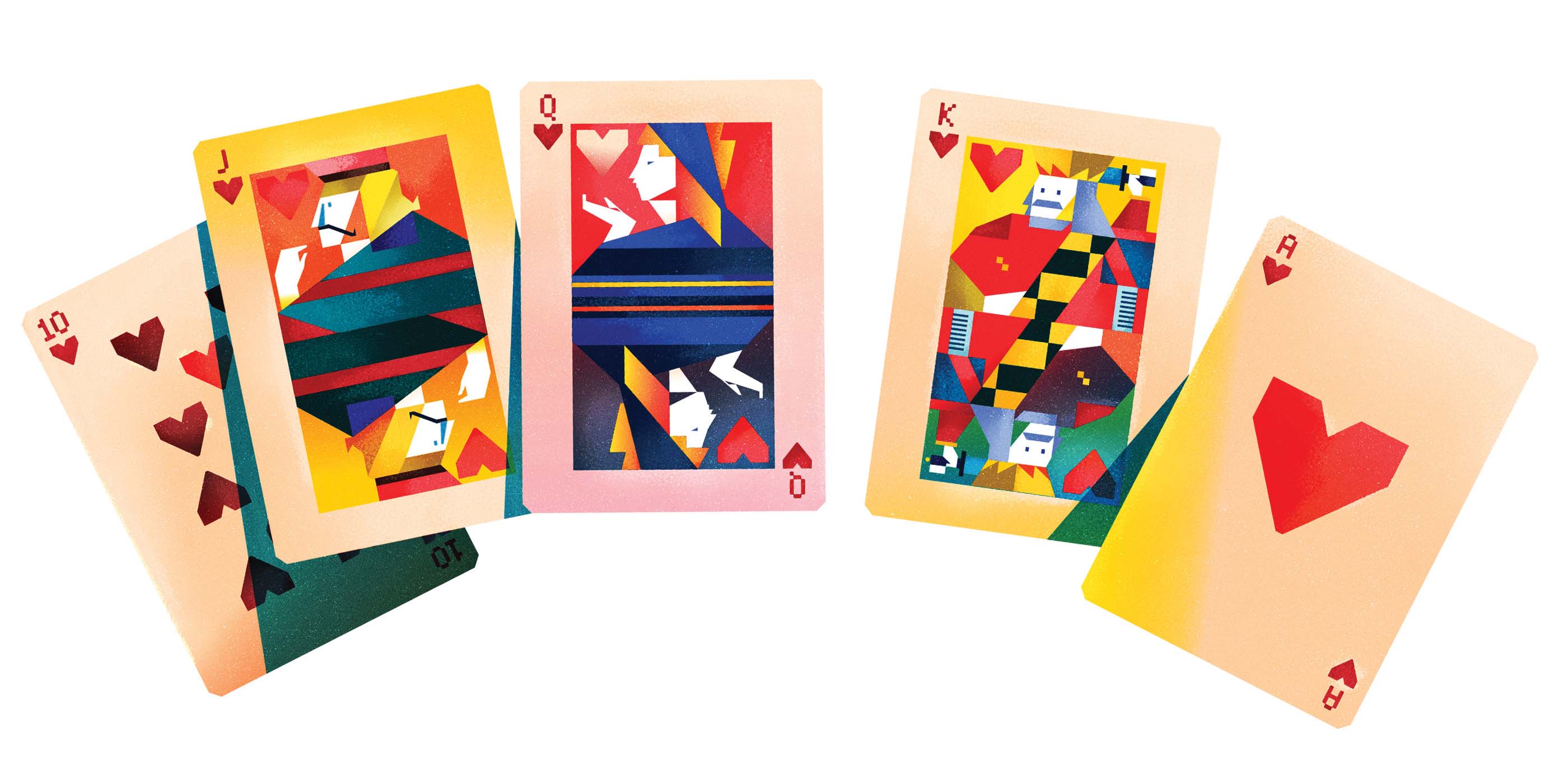
What is that like, to be outplayed by a machine?
I would say it’s humbling. But there’s also a real human pride. Like, Yeah, my fellow humans made this thing. That’s really amazing.
If we made a really fast car, for example, I don’t think we would be lamenting like, Wow, that car is a lot faster than Usain Bolt. Isn’t that a shame that we can’t run as fast as that car? But we don’t care. We still run; we still play chess. We still play backgammon knowing full well that there are machines out there that we stand no chance against. But I don’t think that diminishes in any way the human pursuit of playing games with other humans.
This interview has been edited and condensed.
Credits: Portrait by Keith Barraclough, illustrations by Dan Matutina


